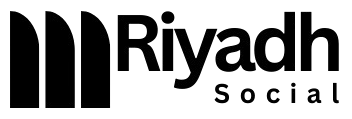The Ultimate Fat Loss Nutrition Plan

Understanding The Calorie Deficit
You’ve probably heard the phrase “calories in vs. calories out” a thousand times. That’s because it’s the undeniable foundation of fat loss. You can have the best training program, and your diet could be on point, but you’re not losing fat if you’re not experiencing a calorie deficit.
A calorie deficit means burning more calories than you consume. When this happens, your body uses stored fat for energy, leading to fat loss over time.
Macronutrients and Their Importance in Fat Loss
Protein
Protein is the foundation of your physique and vital for your health. It plays a critical role in muscle repair, recovery, and growth, ensuring you maintain the strength and definition you’ve worked hard for as you shed fat. Here’s why getting enough protein is crucial for both muscle and health:
- Muscle Growth & Retention: Protein provides the essential amino acids your body needs to build and repair muscle tissue.
- Increased Metabolism: Protein has the highest thermodynamic effect (TEF) of food, meaning your body burns more calories digesting protein than it does digesting fats or carbohydrates.
- Supports Immune Function: Amino acids build many enzymes, hormones, and immune cells. A protein-rich diet supports a strong immune system, balanced hormone levels, and faster recovery from workouts.
- Keeps You Fuller for Longer: If you’ve ever tried to diet and felt constantly hungry, you probably weren’t eating enough protein. It’s the most satiating macronutrient, which helps reduce cravings and control appetite when cutting calories.
Carbs
Carbs get a bad rap, but the truth is, they’re your body’s primary fuel source, especially during intense training. The key isn’t to eliminate carbs but to use them to fuel your workouts, aid recovery, and optimize fat loss without sacrificing performance.
Grains and Vegetables
- Starchy Vegetables: sweet potatoes, beets, squash
- Whole Grains: rice, quinoa, oats (if tolerated and you have room for them after eating fruits and veggies.)
Healthy Fats
Fats regulate hormones, keep you full, and support joint health. Cutting them too low kills testosterone levels and slows fat loss. If you’ve been told to cut fat to lose fat totally, that’s BS. Fats are essential for metabolism, hormone production, and health.
Conclusion
Remember to drink half your body weight in ounces of water because dehydration kills your fat-loss efforts. These nutrition methods will help you burn fat, keep muscle, and get lean. Now it’s time to get to work.
Frequently Asked Questions
Q: How do I know if I’m in a calorie deficit?
A: Track your food intake and weight loss to determine if you’re in a calorie deficit.
Q: How do I increase my protein intake?
A: Aim for 1g per pound of body weight per day and adjust as needed.
Q: Can I eat too much protein?
A: Yes, eating too much protein can lead to negative side effects. Consult a nutritionist for personalized guidance.
Q: Can I cut fat to lose fat?
A: No, cutting fat too low can lead to negative side effects. Consult a nutritionist for personalized guidance.

